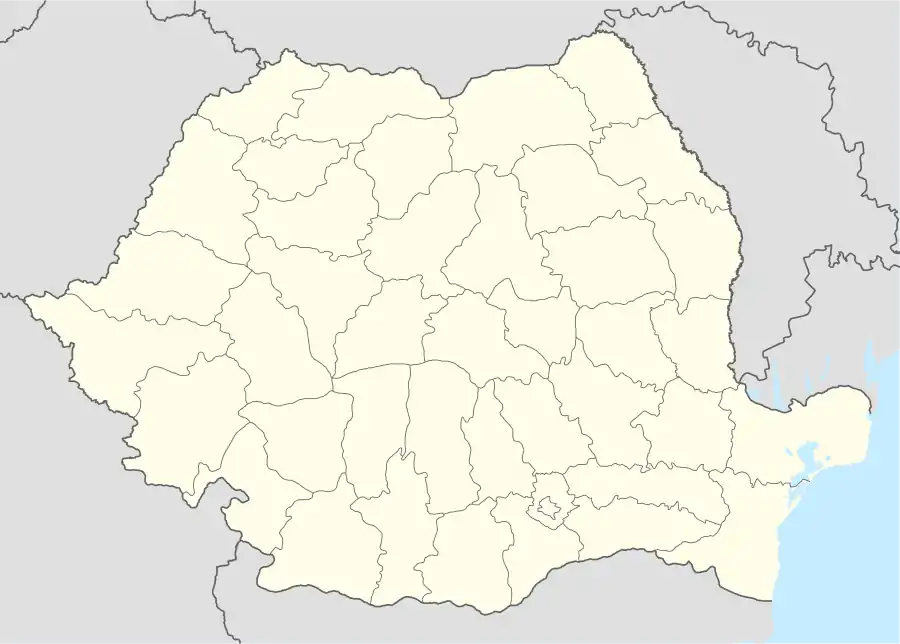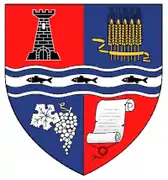Sâniob
Sâniob (Hungarian: Szentjobb; Turkish: Şenköy) is a commune in Bihor County, Crișana, Romania. The village was named after Stephen I of Hungary's Holy Dexter - his preserved right hand which was kept in an abbey here. The name was granted by Ladislaus I of Hungary in 1083. It was conquered by the Ottomans in 1661, becoming the seat of a sanjak in Varat Eyalet. Called Şenköy by the new authorities, it was captured by the Habsburg Monarchy in 1691.
Sâniob
Szentjobb | |
|---|---|
 Location in Bihor County | |
 Sâniob Location in Romania | |
| Coordinates: 47°16′N 22°08′E | |
| Country | |
| County | Bihor |
| Population (2011)[1] | 2,333 |
| Time zone | EET/EEST (UTC+2/+3) |
| Vehicle reg. | BH |
It is composed of four villages:
- Cenaloș (Csanálos), to the southeast of Sâniob
- Ciuhoi (Berettyócsohaj [ˈbɛrɛccoːt͡ʃohɒj]), to the south of Sâniob
- Sâniob
- Sfârnaș (Berettyófarnos), to the southwest of Sâniob
At the 2011 census, 56.7% of inhabitants were Hungarians, 37.3% Romanians and 5.6% Roma. 46.1% were Roman Catholic, 29% Romanian Orthodox, 16.4% Reformed, 5.9% Pentecostal and 0.9% Greek-Catholic.
Known as Sâniob prior to 1968, the commune's name was changed to Ciuhoi that year and its seat moved to the latter village. In 2012, the commune's previous name was revived and the seat moved back to Sâniob village.
References
- "Populaţia stabilă pe judeţe, municipii, oraşe şi localităti componenete la RPL_2011" (in Romanian). National Institute of Statistics. Retrieved 4 February 2014.
